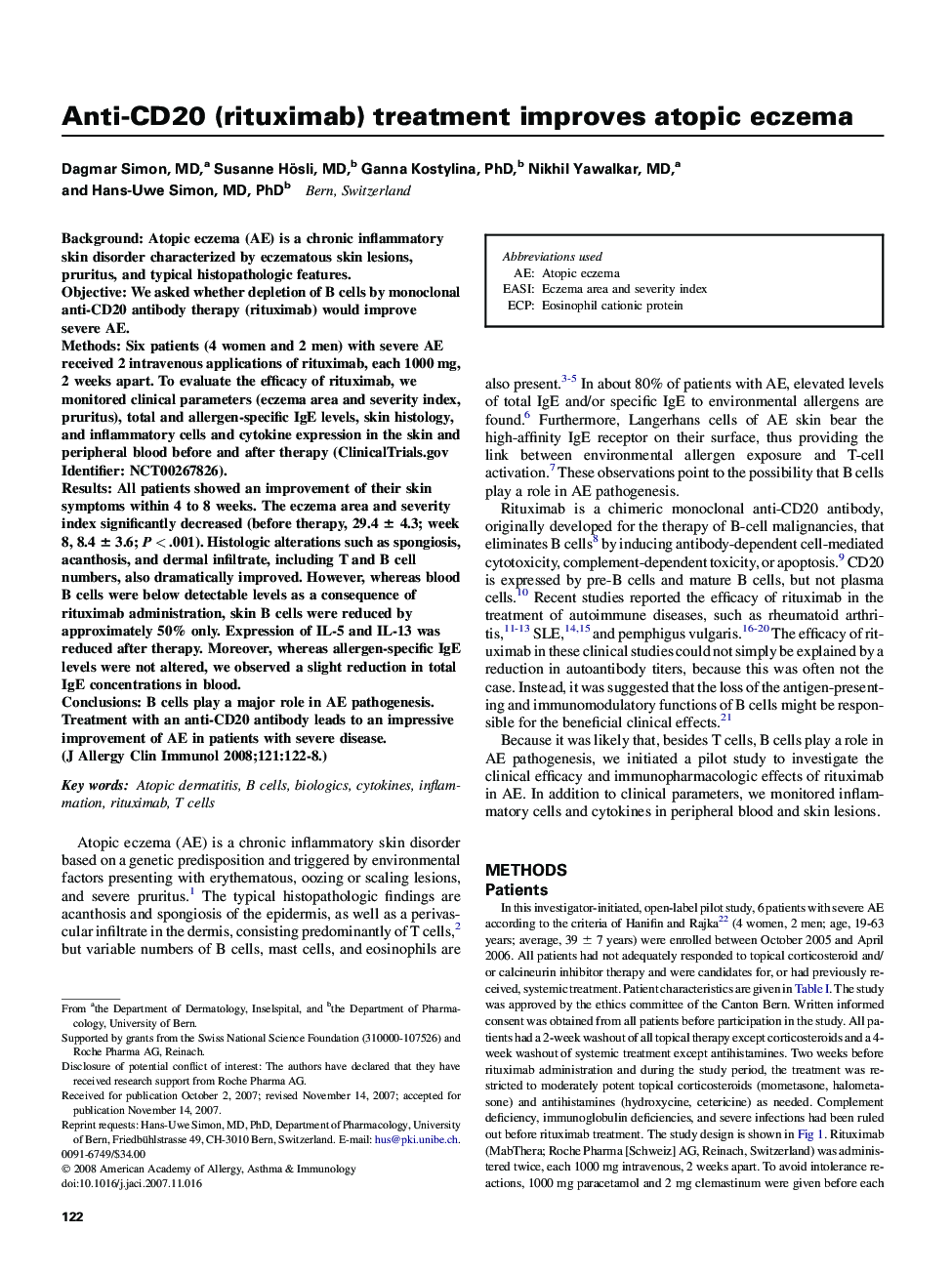| Article ID | Journal | Published Year | Pages | File Type |
|---|---|---|---|---|
| 3200998 | Journal of Allergy and Clinical Immunology | 2008 | 7 Pages |
BackgroundAtopic eczema (AE) is a chronic inflammatory skin disorder characterized by eczematous skin lesions, pruritus, and typical histopathologic features.ObjectiveWe asked whether depletion of B cells by monoclonal anti-CD20 antibody therapy (rituximab) would improve severe AE.MethodsSix patients (4 women and 2 men) with severe AE received 2 intravenous applications of rituximab, each 1000 mg, 2 weeks apart. To evaluate the efficacy of rituximab, we monitored clinical parameters (eczema area and severity index, pruritus), total and allergen-specific IgE levels, skin histology, and inflammatory cells and cytokine expression in the skin and peripheral blood before and after therapy (ClinicalTrials.gov Identifier: NCT00267826).ResultsAll patients showed an improvement of their skin symptoms within 4 to 8 weeks. The eczema area and severity index significantly decreased (before therapy, 29.4 ± 4.3; week 8, 8.4 ± 3.6; P < .001). Histologic alterations such as spongiosis, acanthosis, and dermal infiltrate, including T and B cell numbers, also dramatically improved. However, whereas blood B cells were below detectable levels as a consequence of rituximab administration, skin B cells were reduced by approximately 50% only. Expression of IL-5 and IL-13 was reduced after therapy. Moreover, whereas allergen-specific IgE levels were not altered, we observed a slight reduction in total IgE concentrations in blood.ConclusionsB cells play a major role in AE pathogenesis. Treatment with an anti-CD20 antibody leads to an impressive improvement of AE in patients with severe disease.
